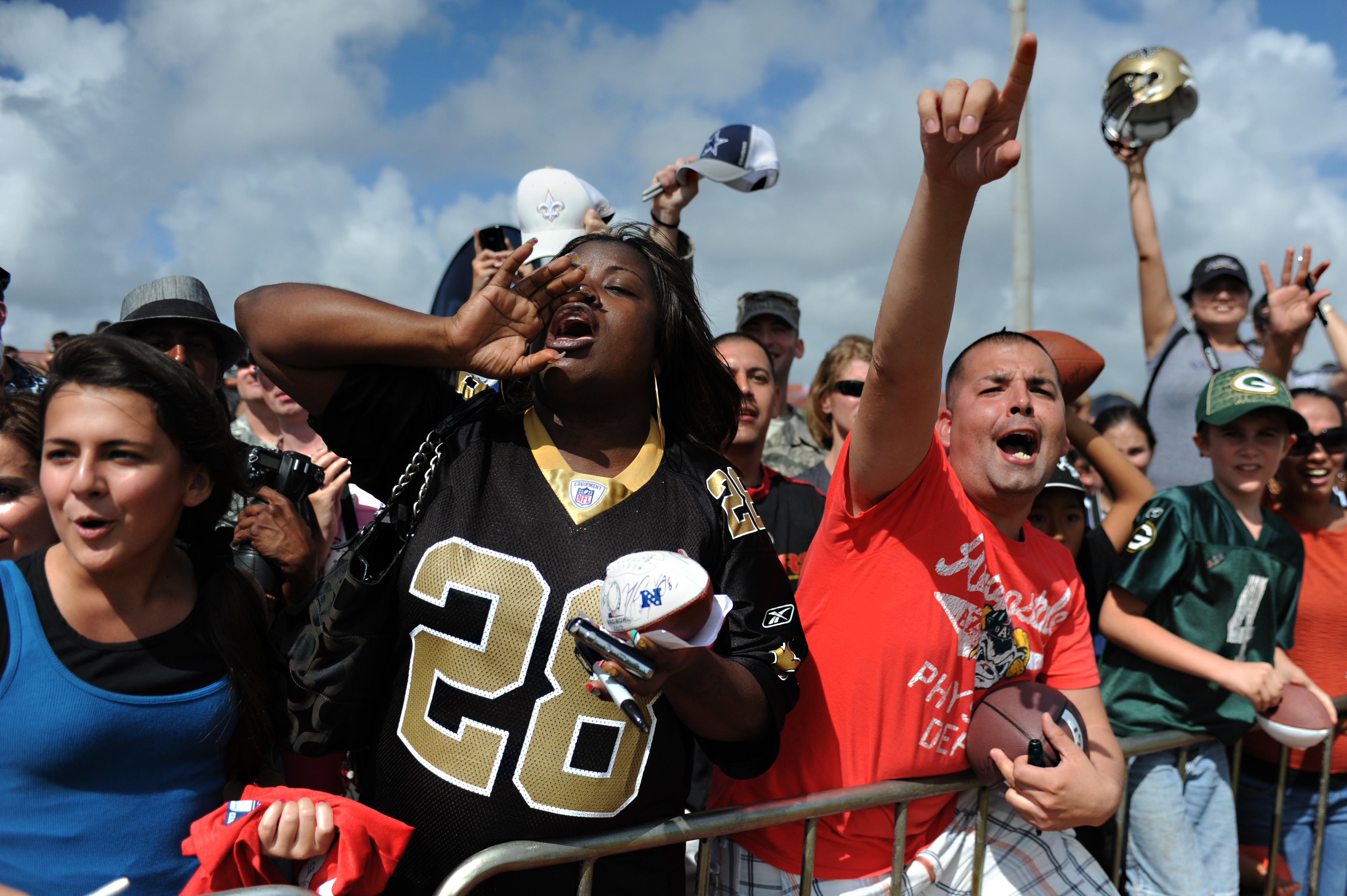
A new study suggests serious sports fans are likely to show strong support for the U.S. military — a finding that could help explain why some Americans react negatively to athletes kneeling during the national anthem.
The study does not specifically address sports fans’ opinions about the national anthem or athletes kneeling during it as a form of political protest. However, for some fans, the military and “The Star-Spangled Banner” are closely linked, said one of the authors, Michael Serazio, an assistant professor of communication who teaches a course on sports, media and culture at Boston College.
“In the minds of those fans, the anthem and the [American] flag and the military are possibly interlocking in a way that to protest in the presence of one is to protest all of those elements,” he told Journalist’s Resource.
Serazio teamed up with Emily A. Thorson, an assistant professor of political science at Syracuse University, to investigate the relationship between sports fandom and certain political attitudes. They discovered they’re closely intertwined, “despite what some fans and commentators might wish to believe,” they write in the resulting research article, published in Public Opinion Quarterly.
They found that, generally speaking, Republicans are no more likely than Democrats to identify as sports fans. However, all sports fans in the United States are more likely to have right-leaning beliefs about the armed forces and economic mobility. Fans are more likely than non-fans to say they support the military and believe a person’s economic success is a direct result of his or her hard work.
“Ideological messaging is omnipresent in sports culture,” Thorson and Serazio write. “This study takes a first step toward unpacking the complicated relationship between sports and politics.”
The findings are based on the results of a survey conducted in November 2016, shortly after San Francisco 49ers quarterback Colin Kaepernick shocked fans by sitting on his team’s bench during the national anthem to protest racial injustice and police violence.
Kaepernick’s refusal to stand spurred a national debate about the appropriateness of big-name athletes protesting at sporting events. Other football players who followed his lead have been called “unpatriotic” for sitting or kneeling during the anthem at the start of games.
Serazio said the timing of the survey was a coincidence. However, a number of the people who participated mentioned Kaepernick’s protest and made comments such as “disrespecting the national anthem should be immediate cause for termination.”
The survey, which focused on a nationally representative sample of 1,051 adults, asked questions about sports fans’ identity, their political attitudes and their opinions about the politicization of sports.
Here are some of the other findings:
- American football is the most popular sport in the U.S., with 56 percent of adults identifying as fans. Thirty-eight percent are baseball fans and 26 percent said they are basketball fans. Meanwhile, 34.7 percent of women and 18.7 percent of men say they don’t follow any sport and don’t consider themselves sports fans.
- Basketball fans of all races are more likely to identify as Democratic and liberal than individuals who do not follow basketball. The researchers didn’t find similar links between political party and other types of sports.
- Political conservatives are much more likely to say they oppose the mixing of sports and politics.
Looking for more research on sports topics? Check out our write-ups on football concussions, the economic impact of Olympic games and gender equity in high school athletics.
